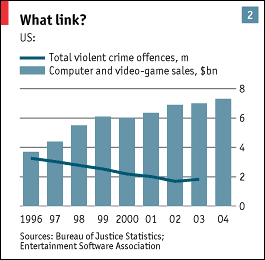Introduction
Video games are on the rise amongst today’s youths. Their influence on the youth is a challenge to both parents and some education experts, although scientists and psychologists support the games.
The merits of video gaming to youths overrule the demerits. With gaming, kids grow up as smart and sharp individuals having developed minds that they require for their future endeavors. As this paper reveals, researchers and child experts have come up with both positive and negative effects of gaming.
Positive Effects of Video Games
Playing video games for a child increases the coordination between his or her hands and the brain. This useful skill is never taught in school (Bissell, 2010). Eye-hand coordination, speed, planning, and multitasking, which are acquired from action video games, are an advantage to the child in the class. In career development, kids who apply such skills have an added advantage since they coordinate their work.
Architectures and fighter pilots use gaming skills to perfect their class abilities. Some video games require accuracy, which is useful to the child who plays the games. Instructions associated with a certain video game help one to develop better reading and mathematical skills since winning entails resource management. With video gaming, learning becomes more fun amongst kids since they do not encounter difficulties in class work.
Furthermore, one acquires diligence, time management, and concentration skills. One is also in a better position to deal with challenging issues. He or she can cooperate in a teamwork activity when the played games involve multiple players.
Since all video games include the use of computers and technology, kids are in a position to embrace the new high-tech. This opportunity opens them to the sophisticated hi-tech world, thus making them comfortable when presented with any computing challenge. Games that attract kids and adults are a bonding activity when played by parents and their children.
A kid’s creativity and self-esteem improve following continued playing of video games. Since youths learn to handle challenges, they are not afraid of making mistakes in front of their peers and elders. Video games are crucial when it comes to curbing aggression, frustration, and stress in a kid. Playing a game helps one to release accumulated tension. Hence, video games are a safer choice for kids other than choosing drugs, stealing, or prostitution.
Negative Effects of Video Games
According to Haugen (2008), violent video games have a bad influence on kids who play them. The kids change their behaviors. They tend to react fast to any slight annoyance from their peers. Majority of people who enjoy violent video games tend to be more emotional. The situation can even land them in juvenile courts. The figure below shows the relationship between video gaming and violence.

Kids who spend most of their time in video games tend to be antisocial. They appear isolated. Video gaming is regarded as a time-wasting activity since the kids spend their time gaming. They lack time for their academics. This situation leads to poor performance. More so, they affect the kids’ long-term concentration and health. Spending more time while sitting can lead to weight gain and later on obesity issues. Kids may also pick a bad language from these video games and become irresponsible before their elders.
Conclusion
Parents and elders should control the type of video games that kids play and the duration they take in the games. In my opinion, although video games serve as entertainment strategies, parents should provide other entertainment options. By doing so, the chances of the kids becoming addicted reduce.
If kids’ behaviors change drastically when they start playing video games, parents should discourage them from playing such games. Also, video games should not be a cause of academic failure to kids. They should only be withdrawn when poor performance is noted.
References
Bissell, T. (2010). Extra lives: Why video games matter. New York, NY: Pantheon Books.
Chasing the Dream. (2005). The Economist. Web.
Haugen, D. (2008). Video Games. Detroit, MI: Greenhaven Press/Thomson Gale.